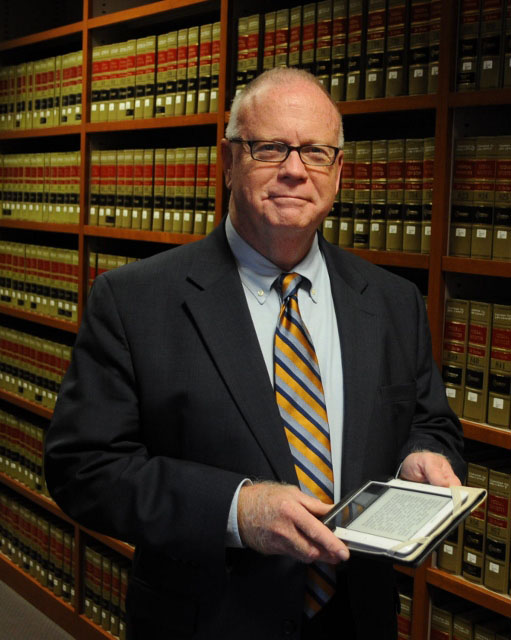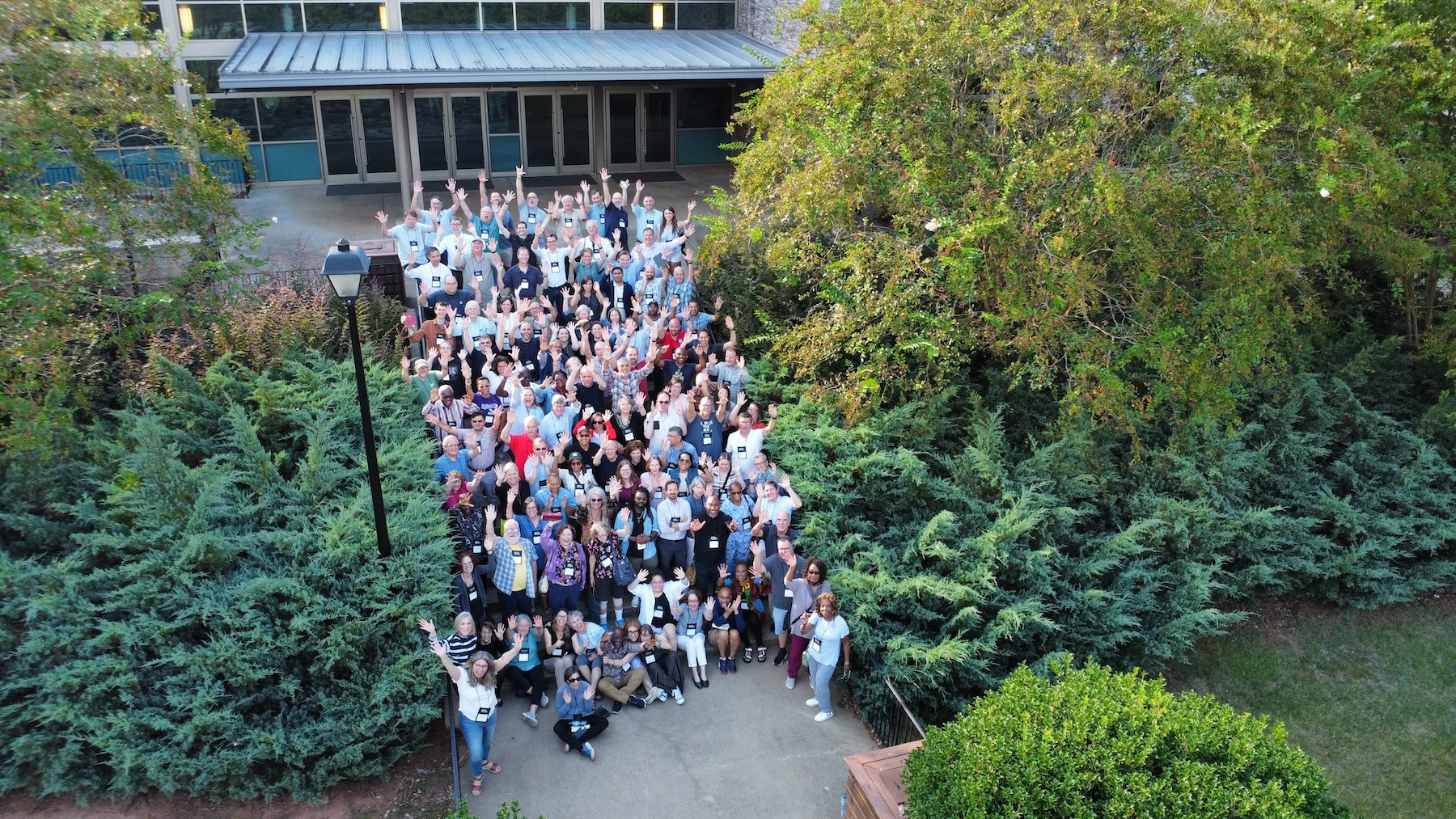
Some 130 deacons and priests gathered at Rock Eagle in Eatonton from September 9-11 with Bishop Rob Wright seeking to understand the importance of bearing witness and its connection to creating both thriving and spirited Christian communities.
During their time at Rock Eagle 4-H Center north of Eatonton, Georgia, adjacent to the Oconee National Forest they focused on the theme “To Be Witnesses” inspired by Acts 1:8.
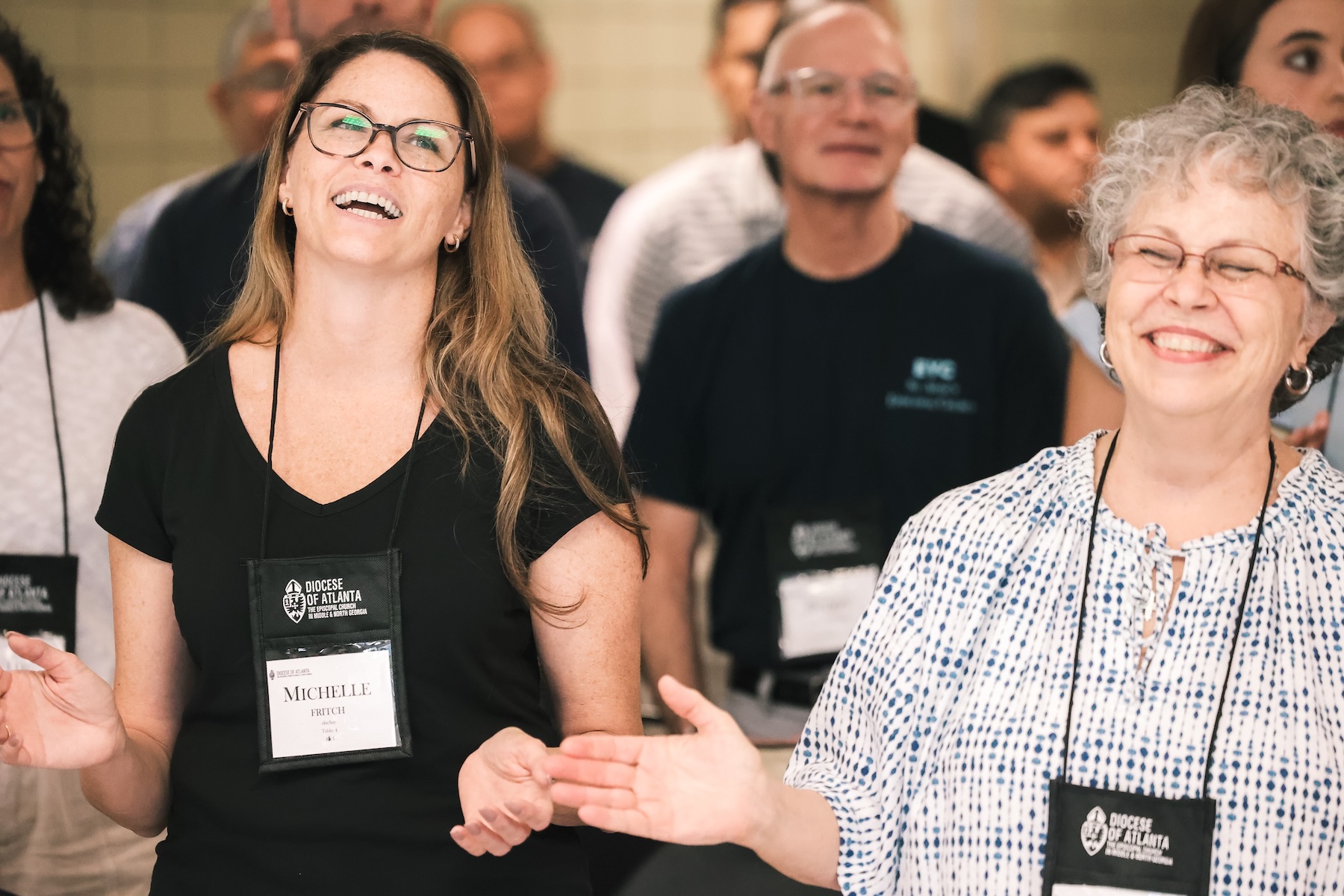
Attendees at The Diocese of Atlanta’s 2024 Clergy Conference were given a pre-conference work assignment to explore their experiences of God’s transformation within the context of Christian Nationalism described in this 2024 Pew Research Center Report.
Bishop Wright provided a guide for their preparation.
“My birth mother’s faith in Jesus caused the most significant change in my life. Because of her faith, she chose adoption rather than abortion. Nine months later two fifty-year-olds adopted me from a Catholic Foundling Home and raised me in the church. But it wasn’t until I enlisted in the Navy that I came to know the decision-altering power of Jesus’ friendship.
Over the course of three days, attendees engaged in thought-provoking discussions about witness through joyful worship and spiritual growth. Clergy attended sessions led by Bishop Wright, The Rev. Dr. Cynthia, Archdeacon Carole Maddux, Anglican Cape Coast Bishop Victor Atta-Baffoe, and Canon Sally Ulrey.
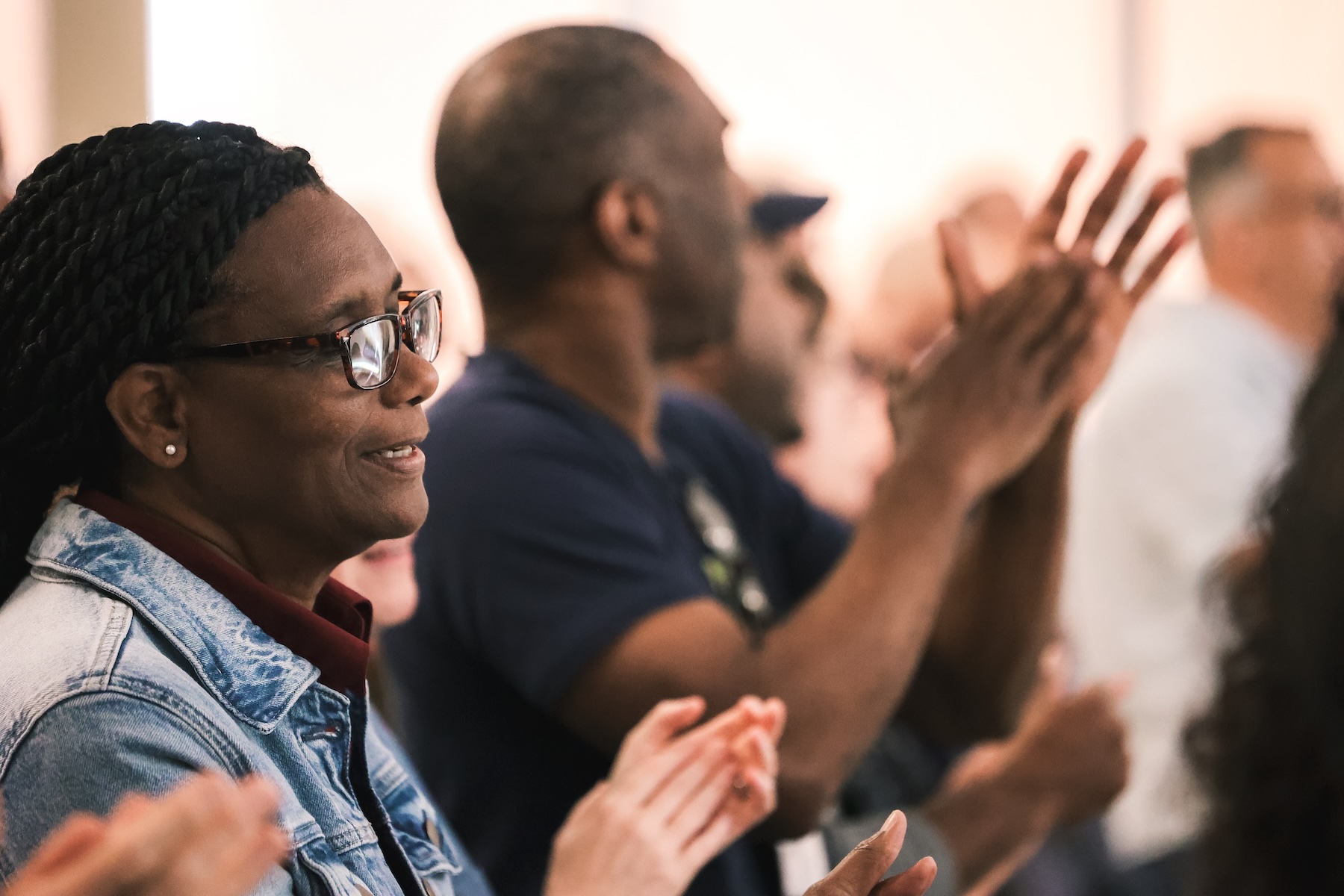
The Witnesses
Rev. Park began her session by discussing what it means to be called to bear witness.
She urged her colleagues to delve into their personal narratives and comprehend their community’s background to become more effective witnesses. Park also addressed the role of clergy in discerning their calling, emphasizing the significance of aligning personal contentment with global needs.
“I want to share three practices with you that have gotten me through. I learned that bearing witnesses is a call and response,” she began. “So, the first thing that I learned is to always keep an eye on where my ego is. We need healthy egos to survive. That is true. But God has plans for all of us that go way beyond surviving in these bodies. As my place at my job has been carefully but consciously dismantled, I have begun to sense a clearer picture of who I am down at the studs, owning the truth of what has been, in my case, a very long and strange trip.”
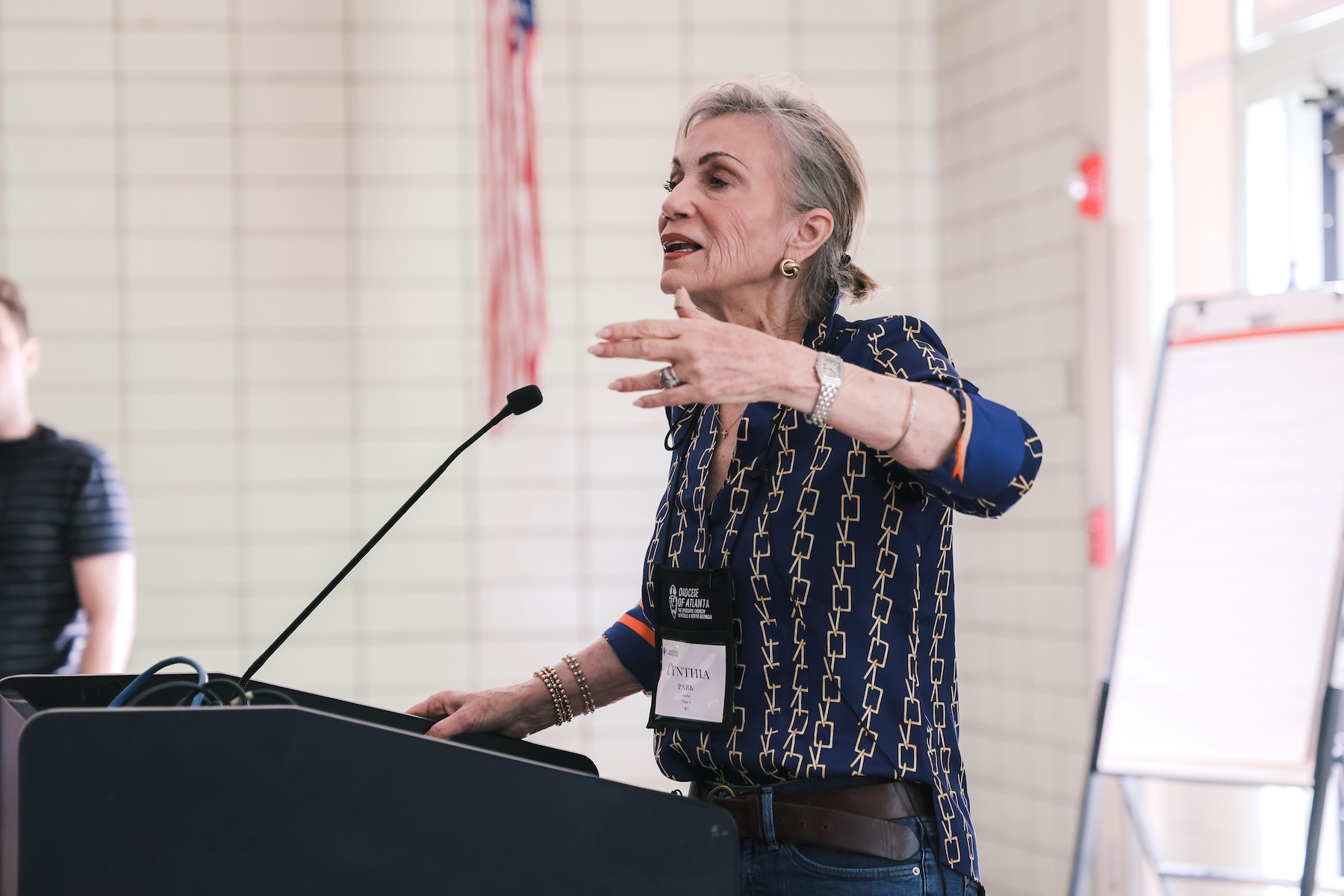
“My second practice,” Park said “is actually learning to balance better between what I can and cannot know, learning to tolerate discomfort and ambiguity in all of my packing and sorting and reflecting on an incredibly rich time. The practice has taught me to recognize where I am in this place and time. My ego wrongly let me think that I must be in the middle of every story I was witnessing, and that if I was in the middle of every story, I needed to understand what was happening. But I wasn’t. I wasn’t in the center of a lot of these stories. I was on the margins. And I was on the margins in order to bear a very particular witness to God’s saving work.”
“The final practice was that I added a mantra to my private devotions from Rabbi Kushner. In his introduction to Jewish mysticism, “Honey from the Rock.” ‘We aren’t always going where we’re going for the reasons, we think we are going where we are going.’ “I don’t know about you, but sometimes for me, like Abraham, I have to get right up close to the thing that is unimaginable before I can get close enough to hear that Ram caught in the thicket.
Then Park said,
“The final thing that I want to bear witness to, glasses off, is you. You are the sacred witness. Just being here year after year with you in this place that I have been longer than I have been anywhere in 72 years, with all our diversity, with all of our quirks, all of our brokenness, all of it, it became, over time, the safest place I could imagine.”
Park concluded with a call and response song, “Shalom Havarim,” meaning peace and farewell among companions.
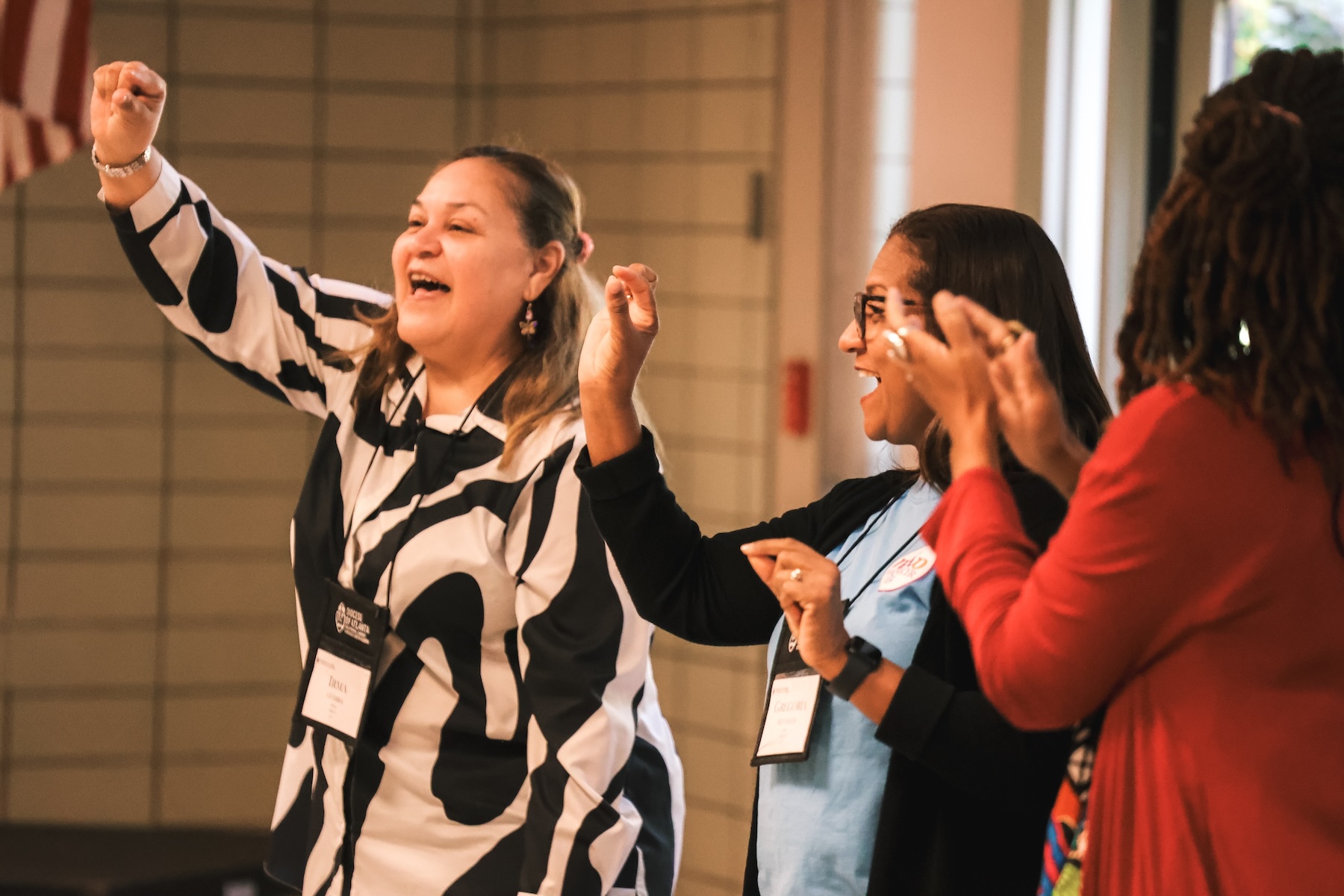
The Deacons
Archdeacon Carol Maddox and Canon Sally Ulrey had an animated discussion on the importance of connecting with the community’s needs.
Ulrey who is Canon for Congregational Vitality and Ministry Development began by asking Maddux about the role of deacons in sparking service-oriented activities within congregations.
“Help us sort of explore that service, that outward facing, taking care of people,” Ulrey said.
“What the Book of Acts is saying to us right now at this crux time in the church where we can feel the ice breaking up, but we don’t know exactly where the river’s flowing [is about] the upper room,” Maddux said. “I’m really seeing the upper room as where we wait to be called. The disciples went out from there filled with excitement. They went out from there so full of the spirit. No room could hold them. No country could hold them. I mean, they went everywhere. Thank God.“
Archdeacon Maddux shared how her personal transformation drove her to serve others including her role in founding the Church of the Common Ground, a ministry to Atlanta’s unhoused during her assignment at St. Aiden’s Episcopal Church in Alpharetta, GA.
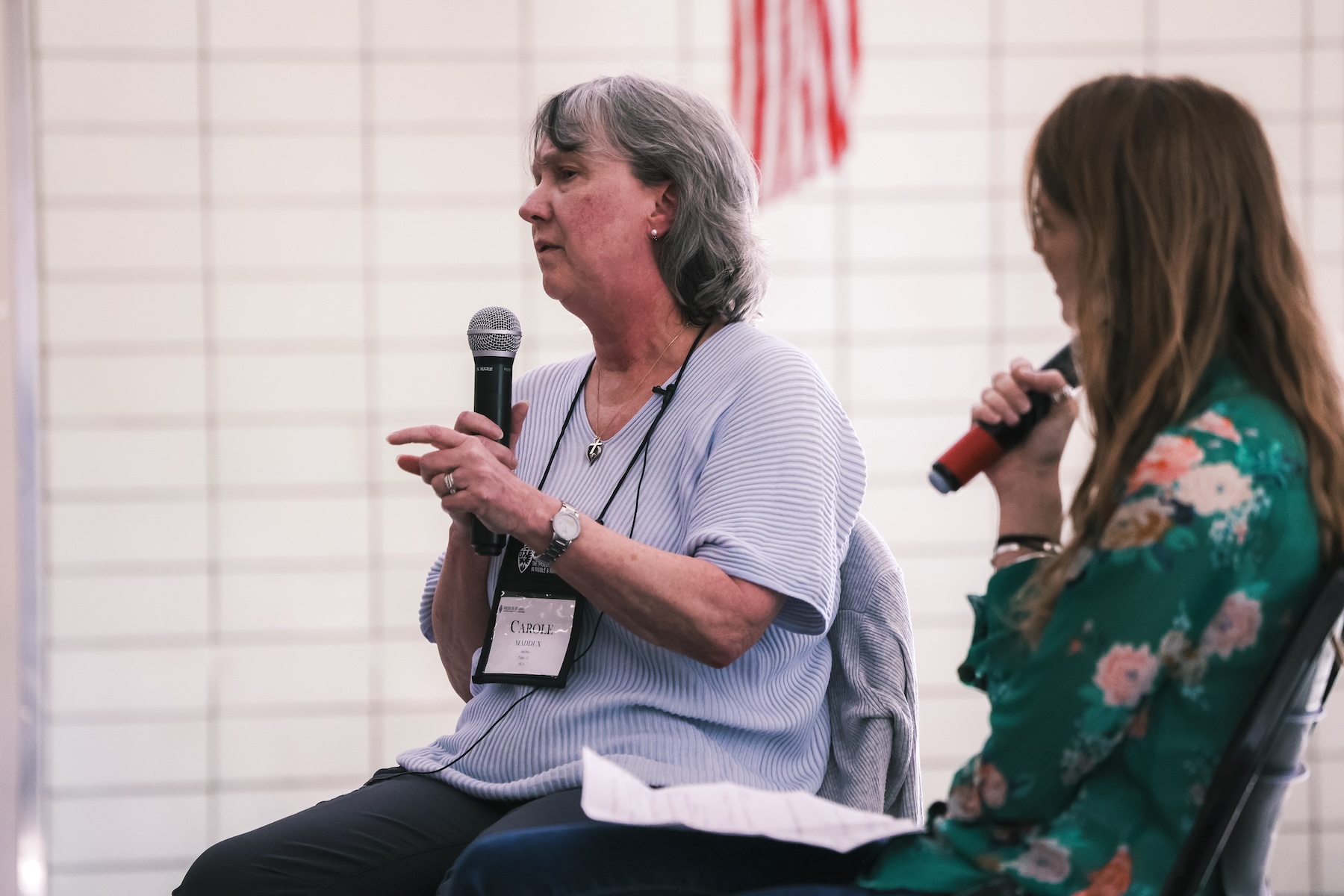
After she visited a ministry for people experiencing homelessness in Boston, Maddux decided to start a similar effort in downtown Atlanta.
“So, I went down to Woodruff park, backpack full of granola bars and water, because it was Georgia and it was hot because it was August and was looking around for a couple I had heard about, a Lutheran couple that was starting a church. They didn’t stay in Georgia in the summer, but they came back. And in the meantime, I had formed community with people in Woodruff park. Now, I was still doing the St. Aidan’s thing but then hopping on the train and going down to the park.
“And so, when they came back, we formed the church of the common ground, which, thank God, and Kim Jackson is still going. But let me share my disappointment from that story, too. That was over 15 years ago. I thought there’d be thousands of common grounds by now because there are so many hurting people in The Diocese of Atlanta. There are so many.
“The one thing that this world has more of than anything else is hurting people. And that’s where diaconia is driving us to, is where those people need to hear that God loves them, really. When you look particularly at the overdose deaths. Those are deaths of despair. Those are deaths of people with no hope. We have hope. We have so much hope. We have so much love, and our people have so much love and hope that, you know, God is calling us to get out of that upper room and share that.”
The Partnership
Bishop Atta-Baffoe from the Anglican Provence of Cape Coast Ghana for ten years was previously the Dean of St. Nicholas Seminary established in 1975 as Ghana’s first independent Anglican Seminary. The Episcopal Diocese of Atlanta engaged in a companion relationship with the Anglican Diocese of Cape Coast in 2017.
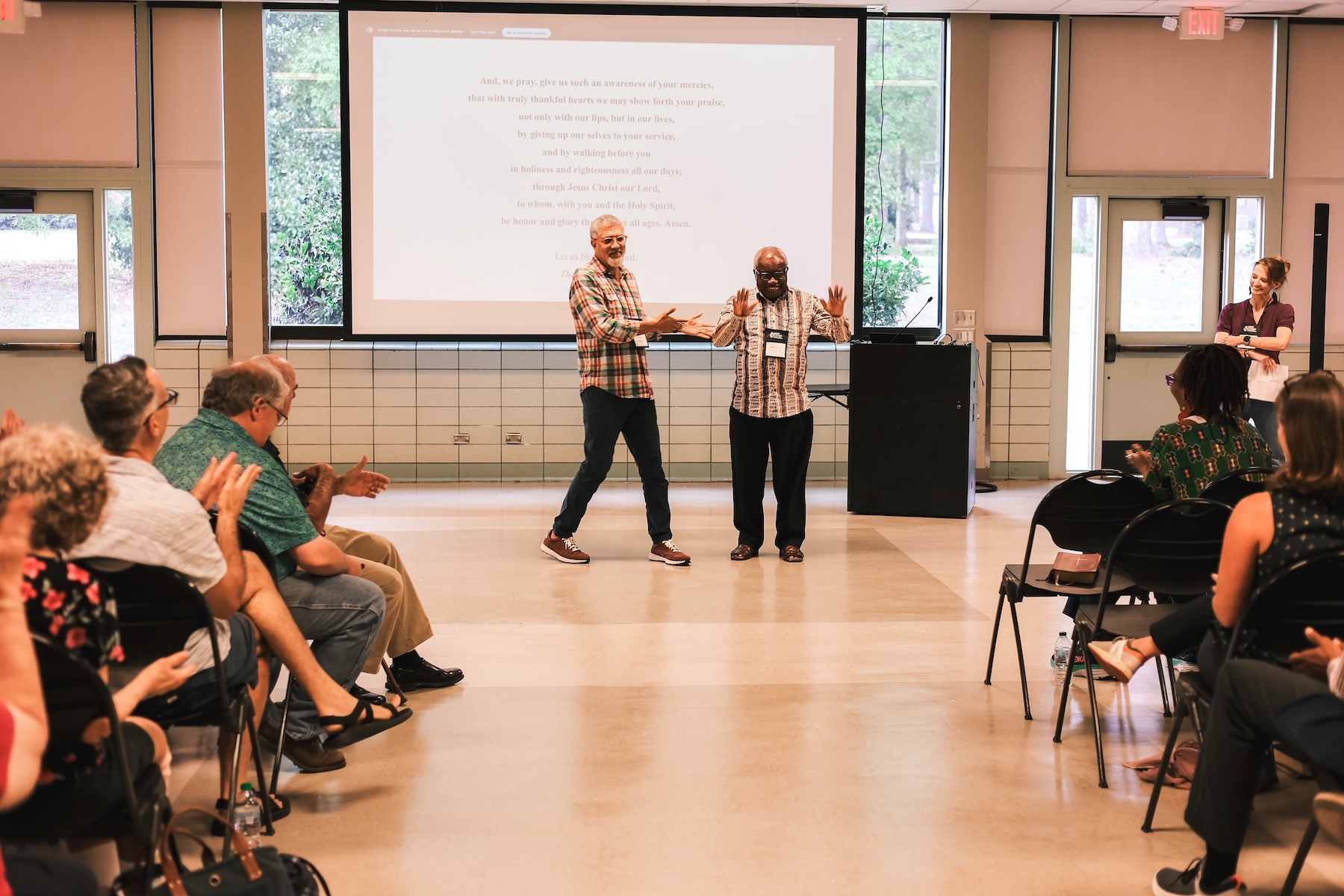
Bishop Atta-Baffoe said clergy seeking discernment for their ministries must be ready for an extended conversation with God.
“Now, discernment is not just like bringing things to mind. Go deep in your heart as part of your vocation and ask yourself, what and why am I here? Why did God bring me to this parish? And in the process of your discernment, be prepared to listen to what God is saying to you. Don’t close your ears. Don’t put yourself first. Avoid any prejudice. Don’t say to yourself, this is what I want to do. Don’t put the cart before the horse. Allow God’s spirit, if it will take six months, one year, prayerfully, religiously, as you read your bible, as you continue with your daily office, allowing God to take you through the process until you come to where you live.
“Listen and look for God’s guidance and always engage with the community.”
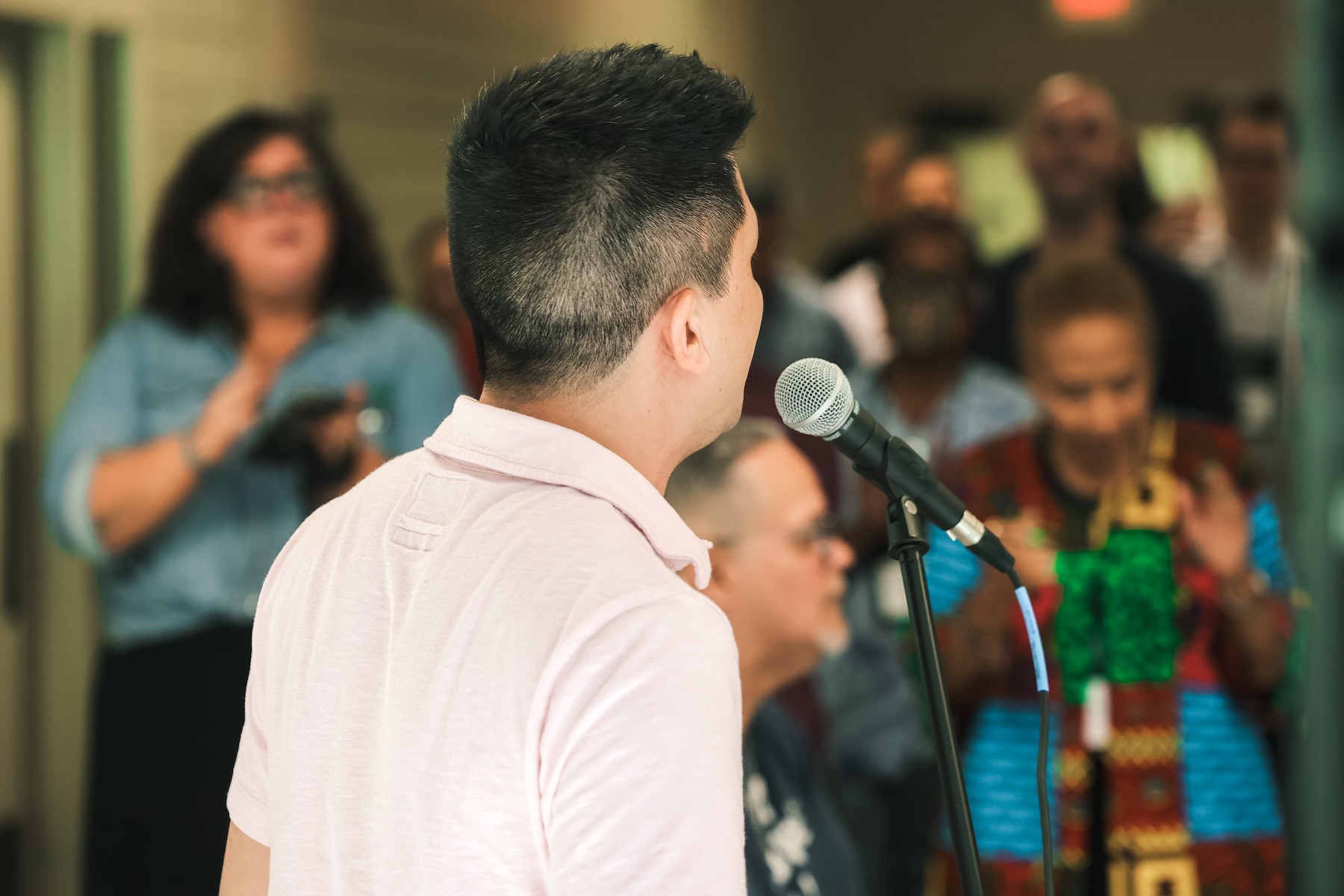
Bishop Victor closed his remarks by emphasizing the importance of community and mutual support. He also encouraged the clergy to think collectively as a diocese and engage in shared mission and witness.
“So, discernment is very important. And in discerning, yes, speaking to God, letting God speak to you, do the consultation as well, reasoning with people from the area, people that we might think don’t matter sometimes they are the people. We have to get down to them. Let’s be with the people and listen to them.
“God speaks in various ways for us, those who’ve been together. Sometimes God can speak to you on a passing vehicle. There are a lot of signs, writings on cars, on buses. And sometimes God can speak to you through the eye, what you might call nonverbal communication. So, try to gather all these thoughts, go into your chamber and put everything before God and allow God to direct you.”
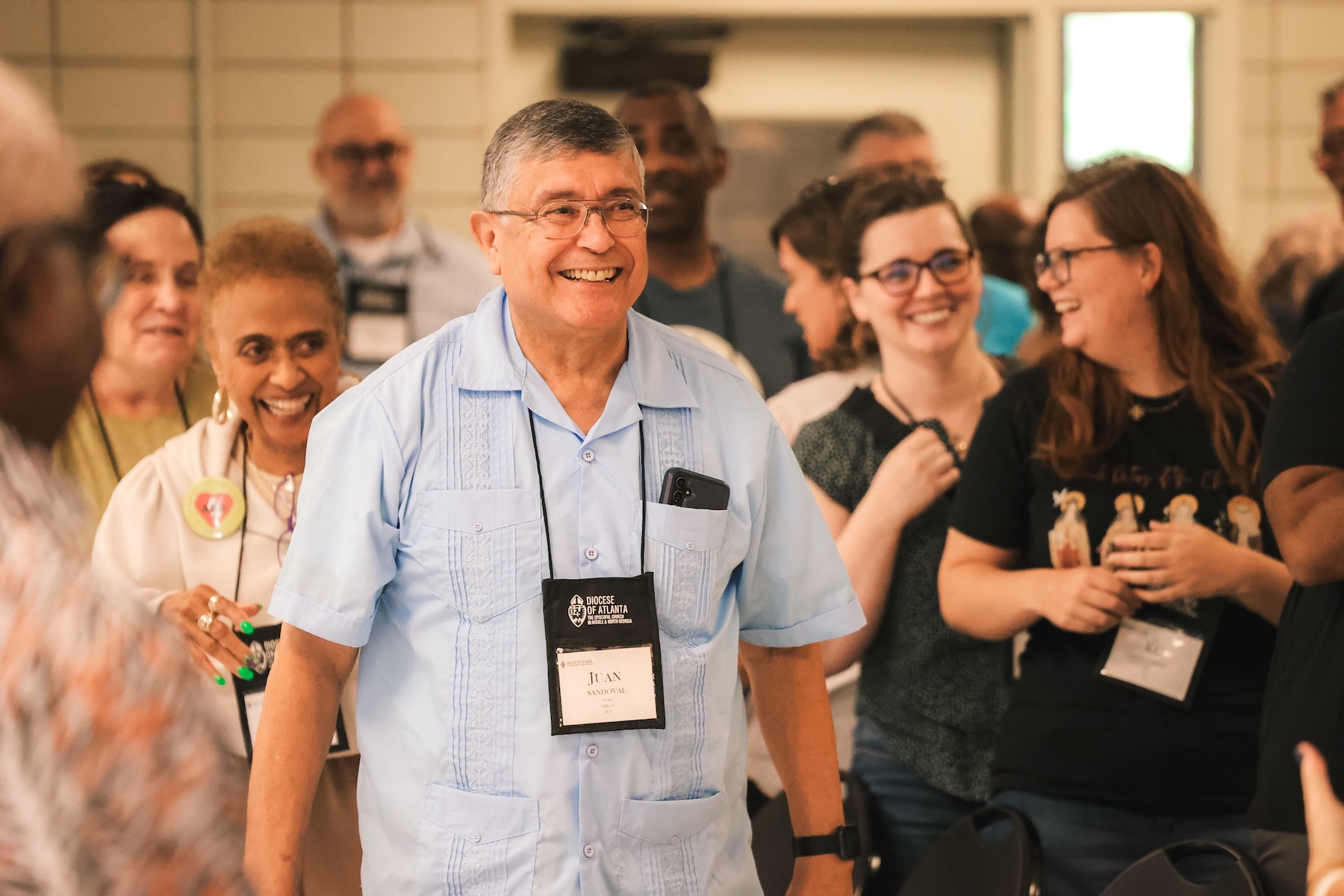
Throughout the three-day event, participants delved into topics like Biblical background and global witness, fostering connections through table conversations and large group discussions.
The Bishop
In his address to clergy Wright said “You are here on purpose, in God’s imagination. You are here right now, and time matters. And that we, according to the Bible, are like arrows which have been shot into now.
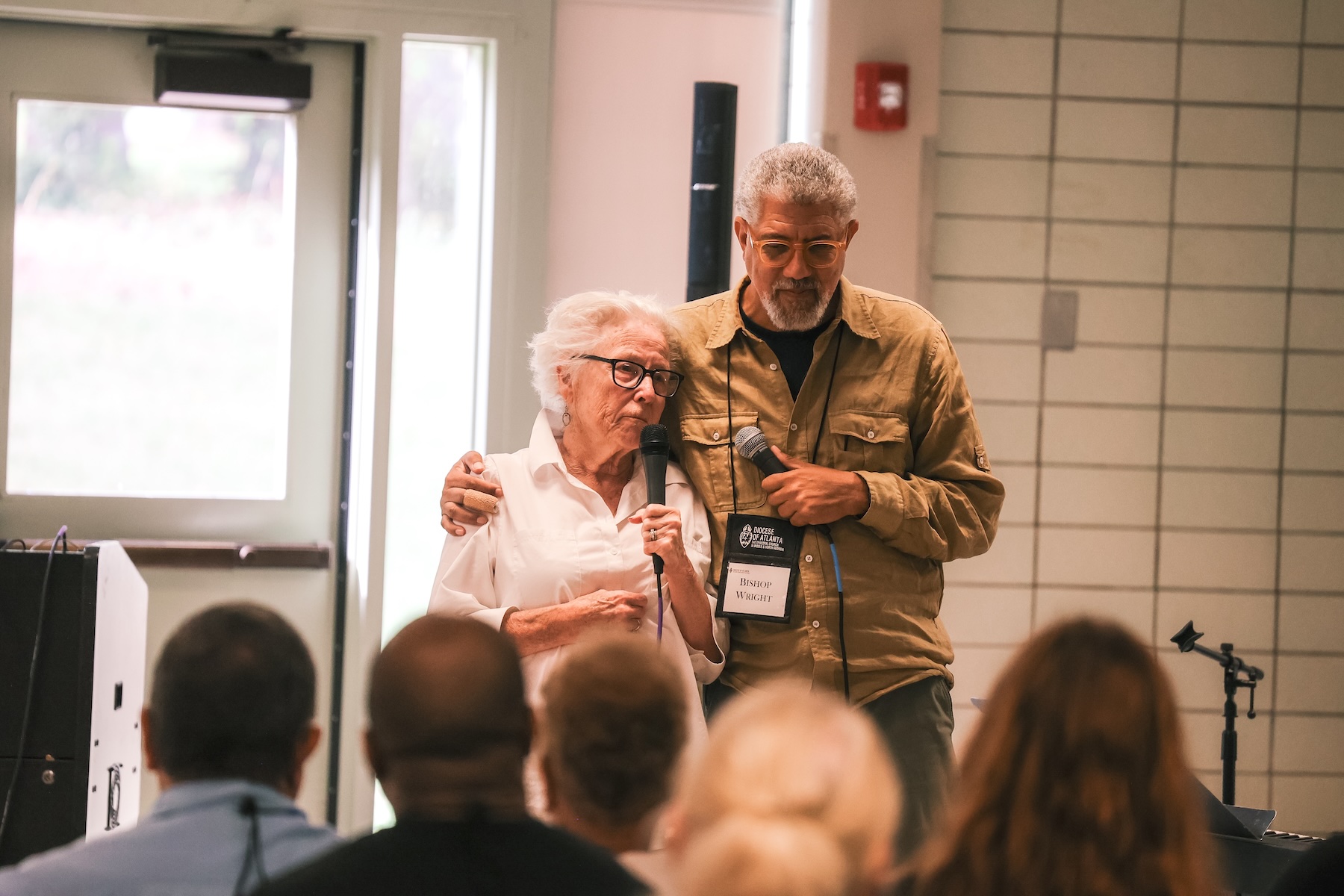
“We are shot into now and entrusted with the difference making good news of Jesus Christ.
“Being a witness isn’t limited by your budget or by training or by gender, age, orders, or language or learning or geographical location, sexual orientation, or abilities. There are no limits, only the limits we impose on it.
“The power to be witnesses to the politics of Jesus was the gift promised to Jesus friends at his ascension day homily. Being a witness is being a steward of the power reserved for the church and conferred uniquely on the church. And now that same power has fallen on us. – Jesus friends should be Jesus’ friends right?
“According to this text from Acts, being a witness is so important to God and so difficult that God knew that God would have to give us a specific portion of power to do this work. Power to be gentle, especially in correction. Power to share. Power to speak up. Power to be merciful. Power to run faithful data, informed, purposeful ministry experiments. Power to grow up in the full stature of Jesus Christ. Power to let some things go in service to what Jesus actually asked us to do. Power to combine candor and kindness. Power to ask for help. Power to apologize. Power to disagree without being a disagreeable spirit. Power to move from management to leadership. Power to tell your story of Jesus and his love. Power to forgive. Power to say no. Power to discern the difference between aggression and courage. Power to share power. Power to cast out fear. These are some of the components of bearing witness.”
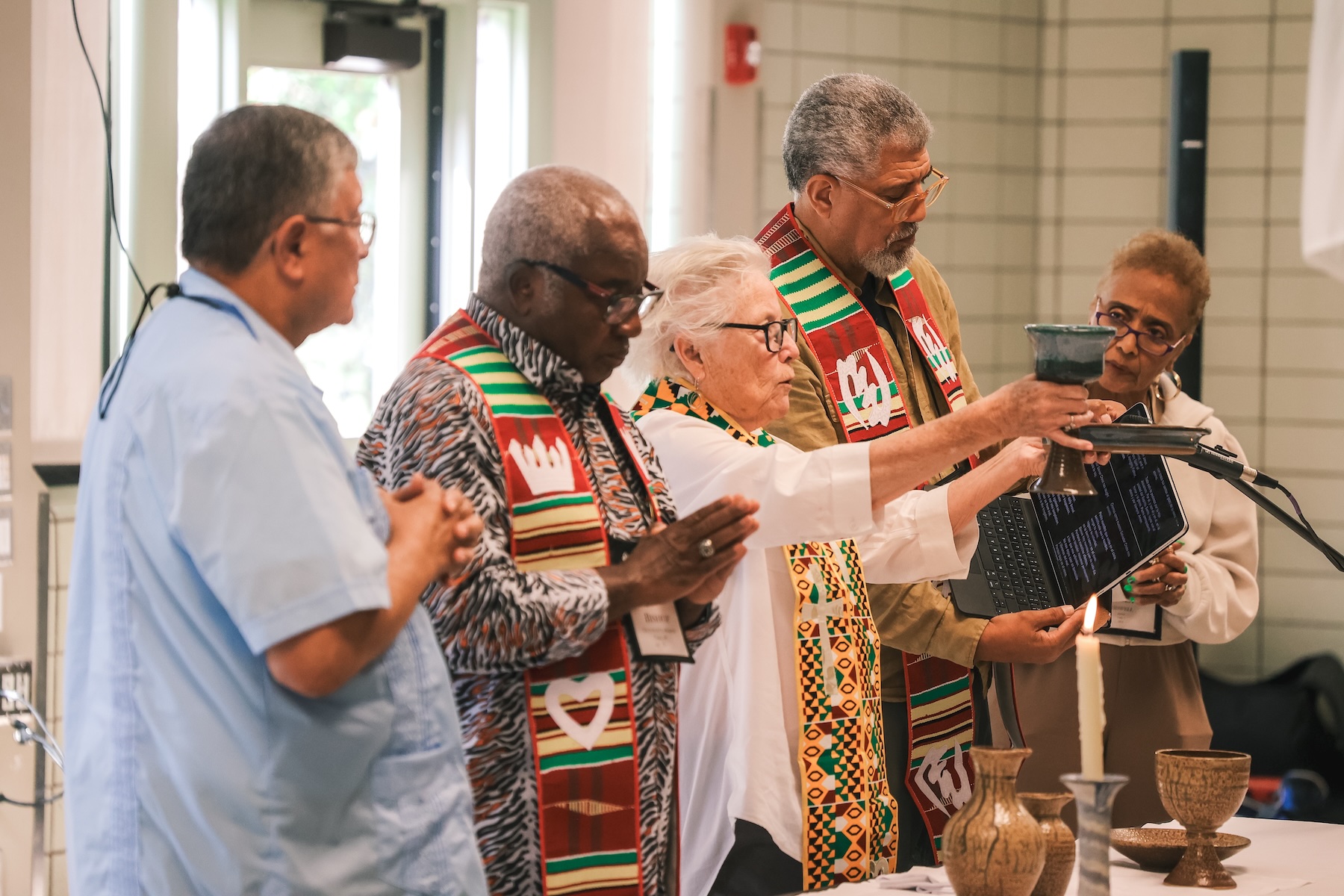
The Rev. Martha Sterne, celebrated the Eucharist in honor of 50 Year’s of Women’s Ordination to the Priesthood
As the conference concluded, participants reflected on their experiences and devised strategies for implementing newfound insights within their respective parishes and ministries.
In an era of great challenges for the Christian church and a crying need for the power of faith to foster unity, the 2024 Clergy Conference was fuel for inspiration, equipping participants to become ambassadors of the Good News and agents of God’s transformative love within their communities.

